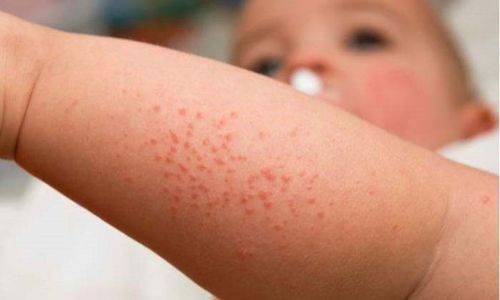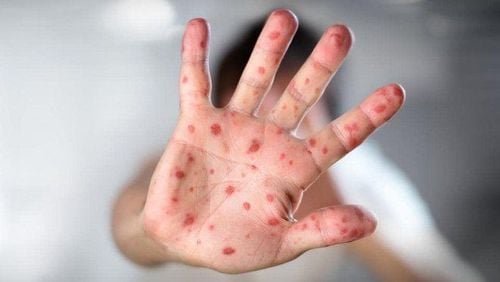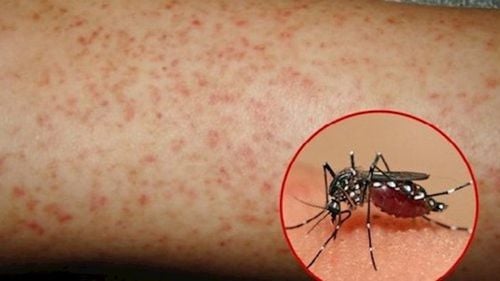This is an automatically translated article.
In addition to diseases such as dengue fever, hand, foot and mouth disease... the diseases below are also a threat to your health in hot, rainy days.
Malaria
This is one of the most dangerous diseases appearing in the rainy season. Malaria is caused by the female Anophen mosquito. Mosquitoes carry disease from an infected person to a healthy person. When suffering from malaria, the sick person may appear symptoms such as fever, headache, nausea, muscle pain...
To avoid mosquito bites that cause malaria, you need to pay attention to kill mosquitoes, bugs, strewn around the house, especially in puddles of standing water. Remember to close the door in the afternoon and at night to prevent mosquitoes from entering the house.
When sleeping, need to sleep under a net to reduce the risk of exposure to mosquitoes. It's best to stock up on some fever-reducing medicine at home to prevent a sudden fever during the night.
Cholera
Bacteria is the causative agent of cholera because it affects the small intestine. Cholera develops and spreads rapidly mainly in areas with poor sanitation. The weather in Vietnam is hot and humid, with a lot of sunshine and rain, so it creates conditions for cholera bacteria to multiply and thrive.
Some symptoms of cholera can include: severe diarrhea, watery stools, rapid weight loss, severe muscle cramps...
Children need to be vaccinated against cholera in 6 first month postpartum. To prevent cholera, it is best to pay attention to the hygiene of food and drink.
Should eat cooked food to avoid cholera bacteria increase when entering the body.
Typhoid
Typhoid is a disease caused by salmonella bacteria and is highly contagious. Typhoid tends to develop from ingesting contaminated food and water. You should be aware that even after being cured, some patients may still have disease-causing bacteria inside the gallbladder.
People with typhoid fever often have symptoms of prolonged fever, headache, severe abdominal pain, followed by constipation or diarrhea...
The specific and proactive way to prevent typhoid is vaccination- ask for. Need to improve hygiene conditions such as increasing clean water, eating clean, drinking boiled water, not eating raw food or suspected of having an infection, washing hands before eating, after going out...
Colds common and influenza
These are in the series of infectious diseases that occur most frequently in the world. It can be caused by a number of different viruses and is commonly referred to as an upper respiratory viral infection.
The common cold and flu can include coughs, runny noses, sneezing...
Diseases are usually spread through the air and through contact, for example breathing in airborne viruses, contact sharing objects with sick people...
For a common cold, the treatment is quite simple, the sick person should drink plenty of fluids such as water, fresh juice, soup... Gargle with Warm salt water, avoiding smoking and drinking alcohol are also ways to prevent colds.
H1N1 flu
Although H1N1 is no longer a pandemic of concern, prevention and detection are still essential. If you notice any flu symptoms, you should see a doctor.
Usually, the H1N1 flu has the same initial symptoms as the common flu. Only through testing can doctors accurately determine whether you have H1N1 flu or not.
To prevent H1N1 flu, should stay away from people with cold and flu symptoms, wear a mask when in contact with sick people.
According to TTVN
Please dial HOTLINE for more information or register for an appointment HERE. Download MyVinmec app to make appointments faster and to manage your bookings easily.













